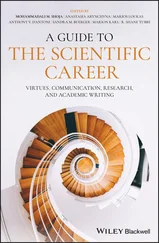George Gore - The Scientific Basis of National Progress, Including that of Morality
Здесь есть возможность читать онлайн «George Gore - The Scientific Basis of National Progress, Including that of Morality» — ознакомительный отрывок электронной книги совершенно бесплатно, а после прочтения отрывка купить полную версию. В некоторых случаях можно слушать аудио, скачать через торрент в формате fb2 и присутствует краткое содержание. Жанр: foreign_antique, foreign_prose, на английском языке. Описание произведения, (предисловие) а так же отзывы посетителей доступны на портале библиотеки ЛибКат.
- Название:The Scientific Basis of National Progress, Including that of Morality
- Автор:
- Жанр:
- Год:неизвестен
- ISBN:нет данных
- Рейтинг книги:3 / 5. Голосов: 1
-
Избранное:Добавить в избранное
- Отзывы:
-
Ваша оценка:
- 60
- 1
- 2
- 3
- 4
- 5
The Scientific Basis of National Progress, Including that of Morality: краткое содержание, описание и аннотация
Предлагаем к чтению аннотацию, описание, краткое содержание или предисловие (зависит от того, что написал сам автор книги «The Scientific Basis of National Progress, Including that of Morality»). Если вы не нашли необходимую информацию о книге — напишите в комментариях, мы постараемся отыскать её.
The Scientific Basis of National Progress, Including that of Morality — читать онлайн ознакомительный отрывок
Ниже представлен текст книги, разбитый по страницам. Система сохранения места последней прочитанной страницы, позволяет с удобством читать онлайн бесплатно книгу «The Scientific Basis of National Progress, Including that of Morality», без необходимости каждый раз заново искать на чём Вы остановились. Поставьте закладку, и сможете в любой момент перейти на страницу, на которой закончили чтение.
Интервал:
Закладка:
George Gore
The Scientific Basis of National Progress, Including that of Morality
PREFACE
As there exists at the present time in this country a considerable degree of uneasiness in the public mind respecting our ability to maintain our position in the race of progress, and as our future success as a nation depends largely upon science, it is desirable to call attention to the great public importance of new scientific knowledge, and to the means of promoting its development.
Although the illustrations given in this book of the importance of such knowledge to mankind, constitute but a small fraction of the number which might be adduced, they are sufficient to show that by the neglect of scientific investigation, we are sacrificing our welfare as a nation to an enormous extent.
The greatest obstacle to the discovery of new knowledge in this country, lies in a wide spread ignorance of the dependence of human welfare upon scientific research. I propose therefore to show in a brief manner, that the essential starting-point of human progress, lies in scientific discovery; also that new truths are evolved by original research made in accordance with scientific methods; and to illustrate these statements by examples; also to point out how such research can be encouraged.
The book is divided into four chapters, viz.: 1st. The Scientific basis of Material progress: 2nd. The Scientific basis of Mental and Moral progress: 3rd. New truth and its relation to Human progress: and 4th. The Promotion of original Scientific Research. As the object of the book is only to call attention to the vast importance of new truth, as as a fundamental source of advance, and how to promote the discovery of it, the essay is written as briefly as possible, and is not offered in any sense as a complete exposition of the subject, especially the section relating to the Scientific basis of Morality.
The leading idea of the Book is that present knowledge only enables us to maintain our present state, that national progress is the result of new ideas, and that the chief source of new ideas is original research. 1 1 See p.p. 165 to 167 .
That as advance has its origin in new knowledge; unless new discoveries are made, new inventions and improvements must sooner or later cease. Another prominent idea is, that truth is essentially the same in all divisions of knowledge, and that the mental powers and processes employed in detecting it are the same in all subjects.
For reasons stated in the text, the influence of scientific discovery upon mental and moral progress are treated together. Notwithstanding the far greater importance of the mental and moral advantages of new truths, the book treats chiefly of the pecuniary and material gains to mankind; mainly because the latter are more easily understood and appreciated, the chapter however on "The Scientific Basis of Mental and Moral progress," indicates in a very brief and imperfect manner, the vast importance of new scientific knowledge to mankind, as a source of mental and moral advancement.
The chief object of this book is to disseminate more correct ideas respecting the importance of new positive knowledge, and the duties of society in relation to it; and a further object is to assist in maintaining Birmingham in the front rank of intellectual, social and moral advance, in accordance with its motto "Forward."
CHAPTER I.
The Scientific Basis of Material Progress
During the last one hundred years this nation has advanced with unexampled speed. More wealth has been accumulated by Englishmen since the commencement of the present century, than in all preceding time since the period of Julius Cæsar; one of the causes of this has been the discovery of new truths of science, and their subservience to useful purposes by means of invention. The great manufacturing success of this country has been largely due to those applications of science, which have enabled us to utilise our abundant stores of coal and iron-ore, in steam engines, machinery, and a multitude of mechanical, physical, and chemical processes; also to the discovery of electro-magnetism and its application in the electric-telegraph, etc. And had it not been for these and other adaptations of scientific knowledge, we should have competed in vain with the cheaper labour and longer days of toil of continental nations. Other great causes, such as our insular position, suitable climate, freedom, geographical position, etc., etc. have, however, also contributed to the result. Commerce also in its turn has done vast things for mankind.
The purely scientific knowledge we possess was discovered almost entirely by means of original research, and to only a small extent by persons engaged in industrial occupations. Probably not two per cent. of all the important discoveries in pure science were made in manufactories; the scientific experiments which are made in such establishments are usually of the nature of invention, not of discovery, and are not often published, because it is a usual object with men of business to retain as much as possible of the pecuniary benefit of their labours to themselves. Whilst it is the object of a business man to monopolise special knowledge; that of the scientific man is to diffuse it, in order that all mankind may be benefited and helped to improve.
Discoveries in science are, however, occasionally made by practical men engaged in technical employments. The hydro-electric machine originated in this way, a man at Newcastle was attending to a steam boiler, and found that he received electric shocks when he touched the boiler. This circumstance was investigated by his employer, Mr. Armstrong, a scientific man, and led him to construct the hydro-electric machine. The accumulation of electricity in submarine telegraph cables was first observed at the Gutta-Percha Company's works London. It was noticed on testing a cable by means of a voltaic battery (the cable being submerged in water) that discharges of electricity flowed from the cable after the battery was removed; this circumstance was investigated by Faraday, and led to improvements in submarine telegraphy. In each of these instances the same general method as that used by scientific discoverers was however employed, viz., new experiments were made (though not intentionally) by putting matter and its forces under new conditions, and new results were observed.
Nearly all great modern scientific discoveries have been made by teachers of science and others, who spend a large portion of their lives in experimental investigation, searching for new truths, and not by persons who have hit upon them by accident. The greatest discoveries in physics and chemistry in modern times, were made chiefly by such men as Newton, Cavendish, Scheele, Priestley, Oersted, Volta, Davy and Faraday: all great workers in science.
It is either by observing matter and its forces under new conditions or from a new aspect, that nearly all discoveries are made; thus Priestley placed some oxide of mercury in an inverted glass vessel, and heated it by means of the Sun's rays and a lens, and discovered Oxygen. This substance was nearly discovered by Eck de Sulsbach three hundred years before; he heated six pounds of an amalgam of silver and mercury, and converted the latter metal into a red oxide like cinnabar, and he remarked, "a spirit is united with the metal, and what proves it is this, that this artificial cinnabar submitted to distillation, disengages that spirit." The "spirit" was evidently oxygen.
Some discoveries are made by observing the phenomena of bodies placed under special conditions by those operations of nature over which we have little or no control. All our knowledge of Astronomy, and much of that of geology and physiology, was acquired in this way.
Читать дальшеИнтервал:
Закладка:
Похожие книги на «The Scientific Basis of National Progress, Including that of Morality»
Представляем Вашему вниманию похожие книги на «The Scientific Basis of National Progress, Including that of Morality» списком для выбора. Мы отобрали схожую по названию и смыслу литературу в надежде предоставить читателям больше вариантов отыскать новые, интересные, ещё непрочитанные произведения.
Обсуждение, отзывы о книге «The Scientific Basis of National Progress, Including that of Morality» и просто собственные мнения читателей. Оставьте ваши комментарии, напишите, что Вы думаете о произведении, его смысле или главных героях. Укажите что конкретно понравилось, а что нет, и почему Вы так считаете.












